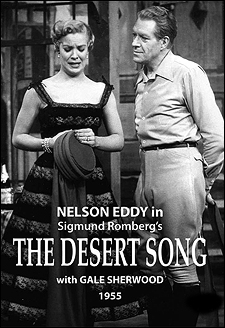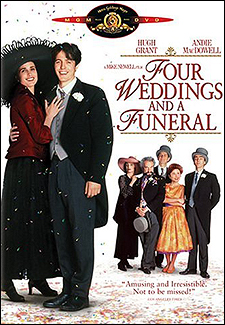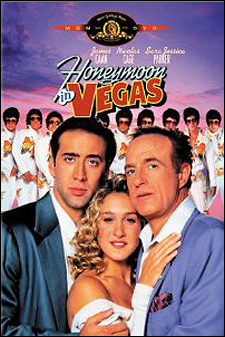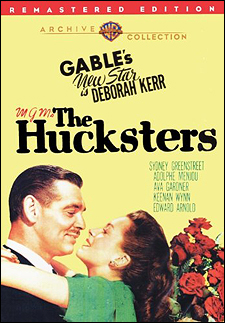
*
In the mid-1950s, producer Max Liebman embarked on a string of television abridgements of old Broadway musicals. On March 12, 1955, came Rodgers and Hart's 1927 musical A Connecticut Yankee [VAI]. This an adaptation of Mark Twain's 1889 novel. (We consider Twain to be from the long-ago land of public domain, but Rodgers and Hart had to license the book from his estate.)
Connecticut Yankee has a score typical of the early musical hits of Rodgers and Hart: bright, breezy, and bursting with youthful vitality (as typified by "Thou Swell," which remains mirthfully vibrant after 84 years). The show itself, with a book by Herb Fields, is not. Bursting with youthful vitality, that is. The boys — they called themselves "The Triumvirate," back in their first flush of success back before the 1929 Stock Market Crash — realized this themselves, so much so that they sat down in 1943 to rewrite and update it.
This was just after the opening of Oklahoma!, by Rodgers without Hart. The success of which seemed to hasten Hart's dissipation, to the extent that he died five days after the opening of the Connecticut Yankee revival. But that's another story.
For his television adaptation, Liebman started with the 1943 version of the show (including the five new songs the boys wrote on that occasion). He set his team of comedy writers — four fellows including Neil Simon, no less — to work, handing the score over to musical director Charles Sanford and orchestrator Irv Kostal. The results are reasonably entertaining. Most prominent among the charms is the performance of Eddie Albert as Martin, that Connecticut Yankee in King Arthur's court. Albert was in his prime, having just finished filming Oklahoma! — in which he played the peddler Ali Hakim; this was preceded by his Oscar-nominated turn supporting Gregory Peck and Audrey Hepburn in "Roman Holiday."
In Camelot — the town, not the musical — Eddie is immensely likable, positively breezing through the show with a wink and a smile; have fun but don't take things too seriously, folks, he seems to be saying. His training under the tutelage of George Abbott, in the comedy hits "Brother Rat" and "Room Service," is readily apparent. The performance also gives us a sense of what he must have been like, in 1938, when he introduced "This Can't Be Love" as Antipholus — the likable twin — in that grand Rodgers-Hart-Abbott musical The Boys from Syracuse.
The rest of the cast has its ups and downs; one major down, that is. On the plus side, we have Janet Blair as Sandy. Blair, a '40s contract player at Columbia, is remembered as a minor movie star. A few years after her screen career fizzled, she landed on her feet as Nellie Forbush in the first national company of South Pacific, cheering audiences for three years. Connecticut Yankee demonstrates her spirited stage presence, although at 34 she was a bit overaged for the fair young demoiselle.
Boris Karloff provides comedy as King Arthur. He sings, too, and not necessarily in time to the music. On the minus side is Gale Sherwood, a Canadian singer who in 1953 became Nelson Eddy's concert and nightclub partner. She looks the role of Morgan Le Fay, but her success ends there. She actually acts her way through "To Keep My Love Alive," which is not what that macabre ditty calls for.
Let us point out that there's some spirited dancing along the way, choreographed by Rod Alexander; Alexander and his then-wife, Bambi Linn (of Carousel), are the lead dancers. One of the standout moments of the program comes — somewhat surprisingly — in "Ye Lunchtime Follies." Not a song that I've ever appreciated, but it works nicely here, the tone set by Hart's playful lyric: "Prithee one, two, three, four, five, six, seven/Eight, nine, ten, gadzooks, and eleven."
*
| |
 |
|
| The Desert Song |
This is Broadway operetta, with a capital "O" — as in Otto and Oscar, who had a hand in so many fabled Broadway operettas. A tale of the desert, with the local sheiks and nomadic tribesmen fighting the French Foreign Legion. Odd, in that (a) the locale was very much contemporary, there having been an uprising by against the French in 1925; and (b) the descendants of these fictional characters are, more or less, still fighting it out in North Africa today. Although they perhaps don't sing as much.
We get a reasonably complete idea of the score, as opposed to what transpires in the several film versions (of 1929, 1943 and 1953). They give us 17 songs, in fact, and that's an awful lot of Romberg. I long ago determined that only "The Riff Song" and "The Desert Song" had much life, with "One Alone" and "Romance" coming in a distant third and fourth. This DVD has done nothing to change my opinion.
The telecast was built around Nelson Eddy — a legendary screen star, but already a star of yesteryear. Eddy achieved immense fame in Hollywood in the 1930s, singing away opposite Jeanette MacDonald. But that ended in 1942, and his screen career withered out. Here, he is only 54, but the camera reveals a decidedly old 54. Leading lady Margot is played by the aforementioned Gale Sherwood. Vivienne Segal she is not. (Segal starred as Margot in the original 1926 production of The Desert Song. She later turned comedienne, her most famous role being that of Vera Simpson in Pal Joey. A close friend of Hart, the role of Morgan Le Fay in the 1943 version of Connecticut Yankee — which included "To Keep My Love Alive" — was written for Segal.)
While Eddy is in seemingly good shape, he appears to have a triple (or quadruple) chin; so much so that when as Pierre — son of General Birabeau — he dons the mask of the Red Shadow, one wonders why the other characters don't immediately recognize him from those chins. When the Red Shadow does his big pas de deux with Margot on the desert sands, it is similarly plain that this is not Nelson under the mask; instead we get Rod Alexander opposite Bambi Linn, and a good thing too.
That said, here's your chance to hear The Desert Song (if you so desire) and Nelson Eddy (if you so desire). Plus orchestrations from Irv Kostal and jokes from Neil Simon. And all those Romberg songs.
| |
 |
|
| Four Weddings and a Funeral |
Andie MacDowell is paired with Grant as the American who he keeps bumping into — and more — at weddings. You immediately know, of course, what'll happen with this pair despite obstacles strewn in their path. Kristen Scott Thomas, Charlotte Coleman, Simon Callow and John Hannah stand out among the cast. The surprise of this surprisingly good film, though, is Rowan Atkinson providing unexpected belly laughs as a novice priest.
*
| |
 |
|
| Honeymoon in Vegas |
"Honeymoon in Vegas" is the 1992 comedy in which Nicolas Cage and fiancee Sarah Jessica Parker go to Vegas for their honeymoon. Millionaire James Caan, taking a fancy to Parker, takes Cage in a fixed card game; Cage's only way out is to give Parker to Caan for the weekend. (No sex, please; they're American, not European.) Cage and Parker are so likable, and Caan is so smooth, that the whole thing turns into a lark. Hilarity is compounded by a plane full of flying Elvises, with whom Cage is forced to skydive his way back to the casino. (The film is being turned into a stage musical by Jason Robert Brown, by the way.) Scattered it might sound, but the whole thing is good-natured and very funny. Plus Anne Bancroft in the small role of Cage's mother.
*
| |
 |
|
| The Hucksters. |
Eight years after "Gone with the Wind," Gable does Gable; but he does so very well, in his second film after returning from wartime service. The "Hucksters" ads featured the blurb, "GABLE's new star is DEBORAH KERR (rhymes with star)." Which does tell us all we need to know. The 26-year-old Kerr had been around since 1941, but this was her first major American film. (She presumably got the part by virtue of her starring role in the 1946 thriller "I See a Dark Stranger" — and there's a film that we'd like to see reissued on DVD.) Gable and Kerr make a good couple, grappling with romance and matters ethical.
The supporting cast is stocked with actors we like to watch, led by Sydney Greenstreet (as a memorably detestable mogul), Adolphe Menjou, and a most interesting Edward Arnold. All these plus notable contributions from Ava Gardner and Keenan Wynn.
"The Hucksters" was directed by Jack Conway, an old-timer with more than 100 films to his credit (starting back in the silent days of 1912). The especially good screenplay is credited to Luther Davis, who would try his hand at Broadway in 1953 with Kismet; the adaptation comes from George Wells and accomplished playwright Edward Chodorov. (When Jerome Robbins was hauled before the House Un-American Activities Committee in 1953, Chodorov was one of the names he named.) Whoever wrote the dialogue — and I suspect much of it came from Chodorov — had an incisive flair.
Gable, Kerr and the others contribute to a provocative two hours of huckstering.
(Steven Suskin is author of the recently released Updated and Expanded Fourth Edition of "Show Tunes" as well as "The Sound of Broadway Music: A Book of Orchestrators and Orchestrations," "Second Act Trouble" and the "Opening Night on Broadway" books. He also pens Playbill.com's Book Shelf and On the Record columns. He can be reached at [email protected].)
*
Visit PlaybillStore.com to check out theatre-related DVDs for sale.










